A lot of people ask me what is the best beginner flex pen. My beginner flex pen was a Waterman 52V with a fine to triple broad, wet noodle nib. Maybe that wasn't the smartest idea, but many years later, I can recommend this pen: the Fountain Pen Revolution Guru. I've used several FPR flex nib pens and all have been pretty successful, but this one is my favorite. More on that in the review.
ABOUT
Body material: Vegetal resinTrim: Metal
Filling system: Piston-filler
Nib material: Steel
Nibs available on Guru model: EF, F, M, B, Stub, Flex
Ink capacity: 1.2 ml +
Cap: Screw on
Posts: Yes, friction
Length (capped): 133.7 mm/5.26″
Length (uncapped): 115.8 mm/4.56″
Length (posted): 149.5 mm/5.88″
Diameter (barrel): 11.7 mm/0.46″
Diameter (section): 9.5 mm/0.37″
Weight (all): 12 g
Weight (cap): 4 g
Weight (body): 8 g
Price: $ 9.00 USD + $3 for flex upgrade
Where to buy: FPRevolution
PACKAGING
None, just bubble wrapped with an elastic around it. My favorite kind. Simple, nothing to keep.
APPEARANCE
I have two colors of the FPR Guru - one clear and one solid navy blue. These are small pens, both in length and width. They are round, tapering to each end. The piston-turning knob is a rounded off point. The finial is a pointed cone - clear on the clear pen and blue on the blue pen. The metal clips are attached externally by a ring just under the threaded finial. Both pens have misaligned, poorly threaded finials, so the clips are quite wobbly and are also misaligned. The clips are simple and unmarked, with a ball at the end, sitting against the cap.
The end of the cap has two thin metal rings spaced evenly apart. The blue pen is a solid, dark blue and the clear pen is all clear. The sections are a decent size, especially considering the pens are not all that large to begin with. They are one piece with the barrels, and are quite thin. They taper towards the nibs and end in a ridge.
These are very simple pens - not the most beautiful, not the most well put together, but they look ok.
NIB & PERFORMANCE
These pens have # 5.5 nibs with 5.1 mm "guru" ebonite feeds. They are both single tone steel nibs - one in fine (clear), one in flex (blue). The fine nib has a single slit and a round breather hole, and is engraved with FPR and some flourishes. The flex nib has a single slit that runs up most of the nib, and there is no breather hole. It is engraved with FPR and 'flex' and some flourishes. Both nibs are on the small side but suit the pen.
Both pens were flushed thoroughly to remove any residual oils in the feed or on the nib as this can affect ink flow. I flush first with some dilute dish soap (i.e. Dawn), and then with clean water until there are no suds coming out. Neither feed needed heat setting upon arrival, but if you find there is a gap, you can heat set quickly and easily. So far, I have not had to heat set any of my FPR pens.
The fine nib really surprised me. Not only was the nib not scratchy, it was actually quite smooth and really nice. It put down a nice fine line that was fairly generous with ink flow. Drying times are average. The nib and feed perform quite well during normal and fast writing sessions. With pressure, the nib actually produces a surprising amount of line variation, and the feed does not dry out quickly. With or without pressure, the nib does not skip or hard start.
The actual flex nib was even more awesome. Not only was it smooth it did not hard start or skip with normal writing. Drying times were longer, with or without pressure, because the ink flow was increased compared to the fine nib. I love this one. Moderate pressure achieved serious line variation and the nib was quite responsive and snapped back quickly. With constant pressure, the nib and feed did run dry and railroad, but it picked up quickly with just a tap or two on the page.
The flex nib is quite forgiving and as it is affordable, it's a great nib to practice your flex hand on, especially if you don't want to go the dip nib route. Flex on the down strokes, and apply no pressure on the upstrokes. If it runs dry, make sure the nib and feed are heat set correctly.
I found both nibs very enjoyable, especially the flex nib. For just a few dollars, you can have a lot of fun!
IN HAND
The section is fairly slim but I do not find it slippery in use. The cap threads are noticeable, but they are not too sharp such that it was uncomfortable to hold them. Although it is slim, it's a comfortable pen for me, and it is quite light. The ridge from the section to the barrel is quite sharp and very visible - again, not the most meticulous finishing. Those with large hands may find these pens too small for longer writing sessions.
Unposted, the pens are very light in the hand. I find them too light to be able to control them properly when they are unposted. The cap can be posted by friction, and it is quite snug and secure. When it is posted, it is much more comfortable to write with - longer, better balance, and a little heavier.
The clip is snug and springy - easy to operate one handed, but it looks a bit wonky. I don't really use it.
PROS & CONS
FINE NIB
OVERALL
For the price, these are pretty decent pens - whether you want to just try out a fountain pen, try out a variety of nibs, get a fountain pen and not spend too much, try out a flex pen, whatever it may be - these are piston-fillers at a great price with a solid nib selection. The finishing leaves something to be desired but I am mostly interested in the flex nib on this model and can overlook the little details for the couple dollars it costs.
Give the flex nib a go. It's a great place to start!

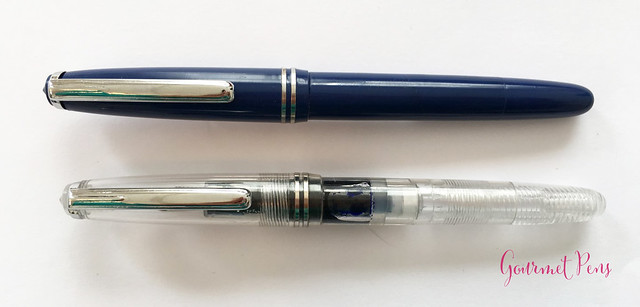
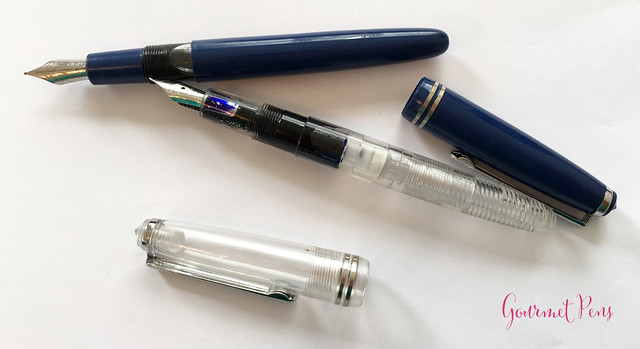
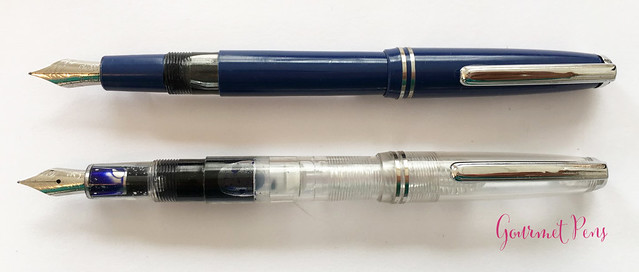
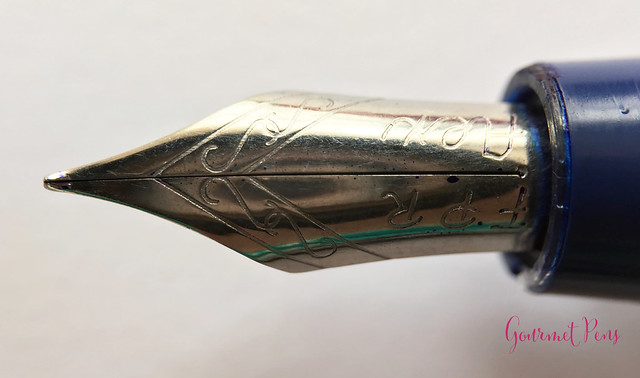
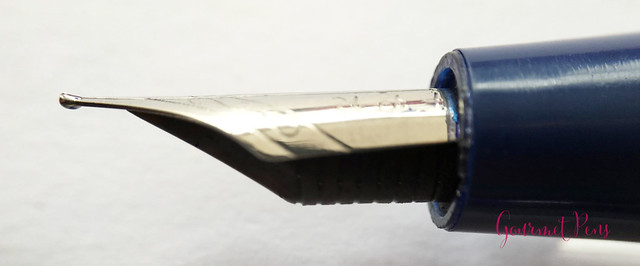
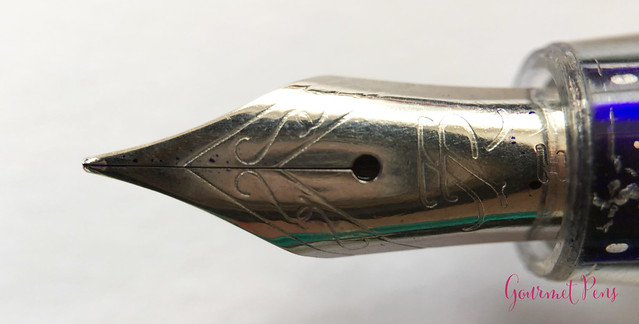
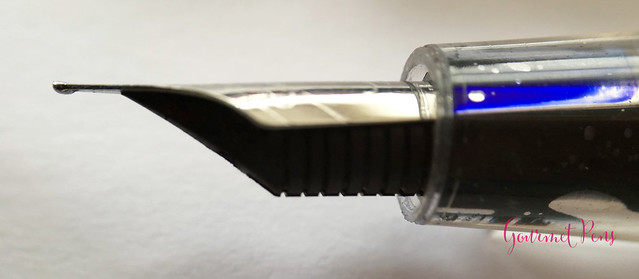
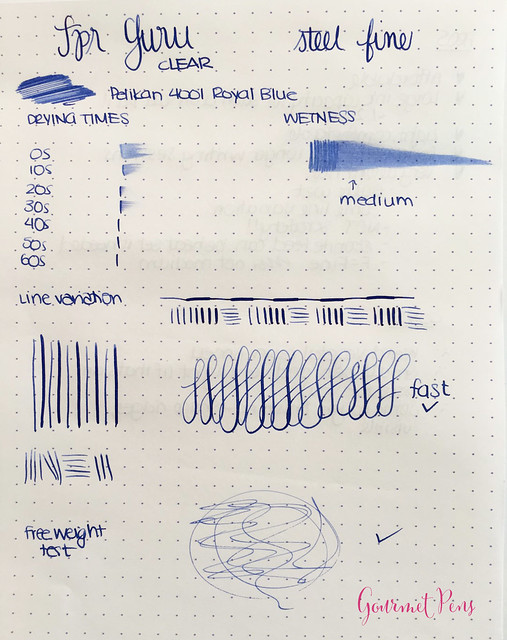
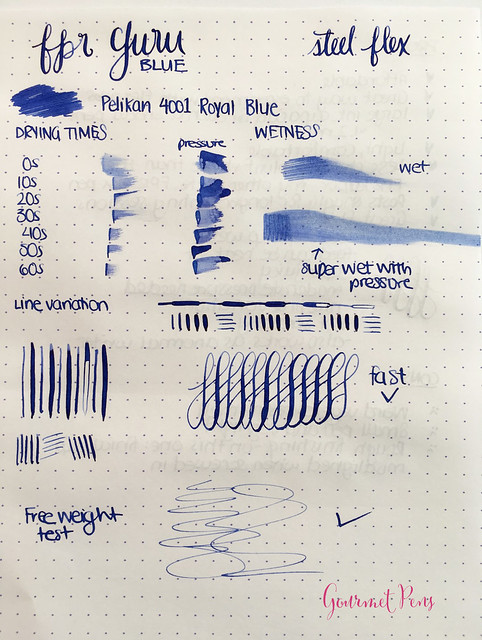
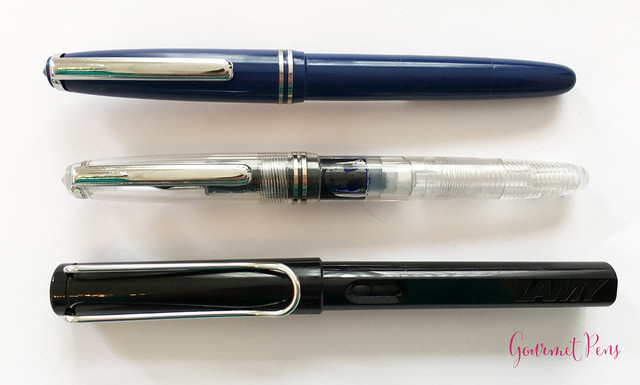
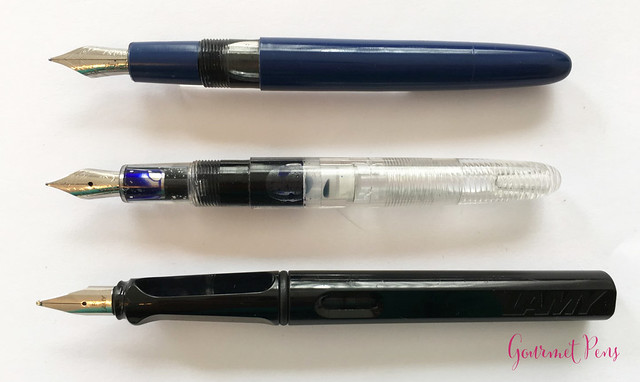
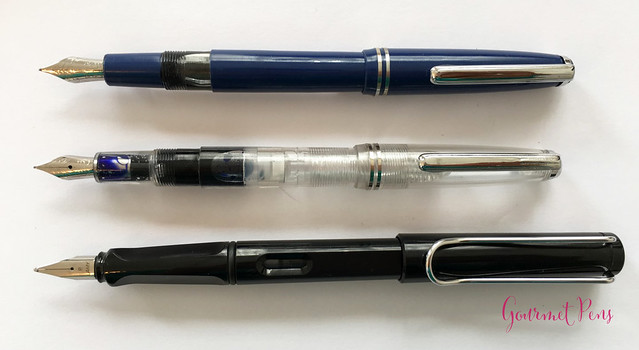
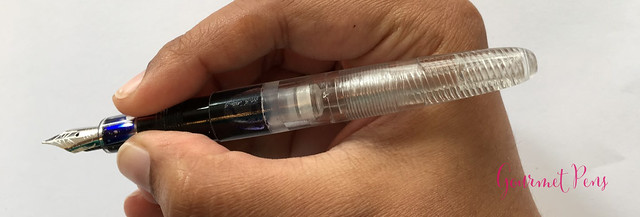
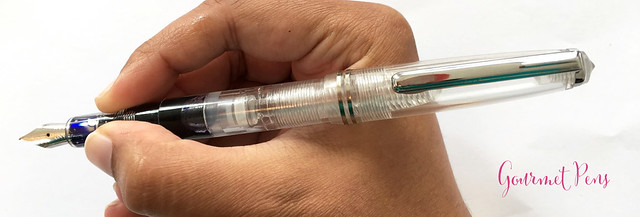
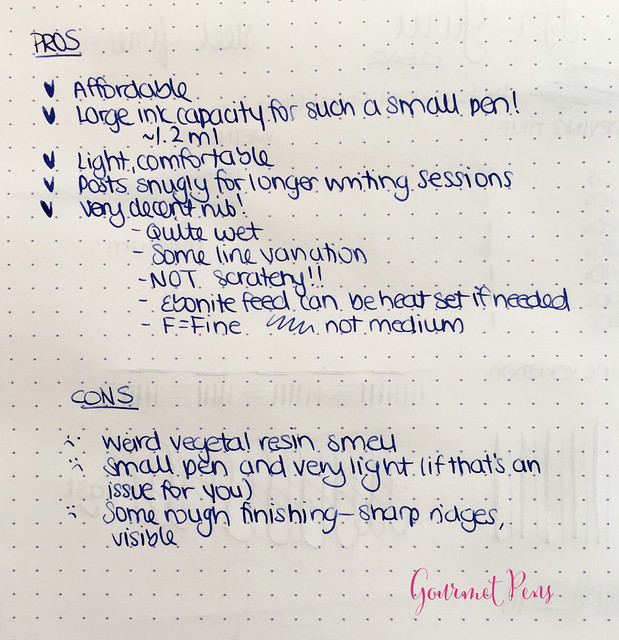
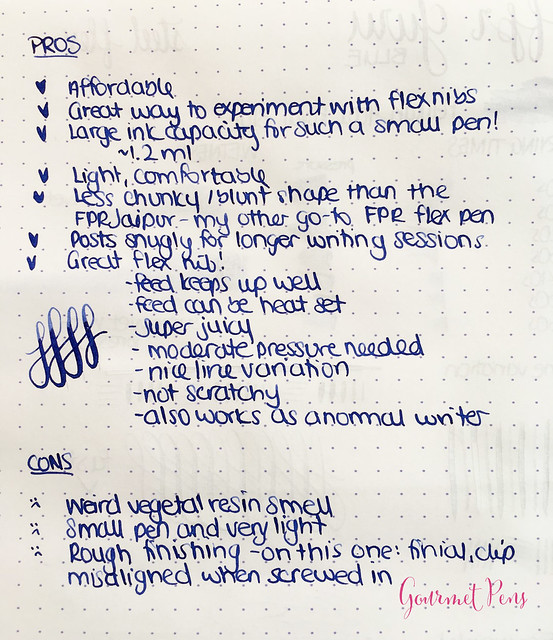


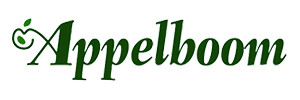


















0 comments:
Post a Comment